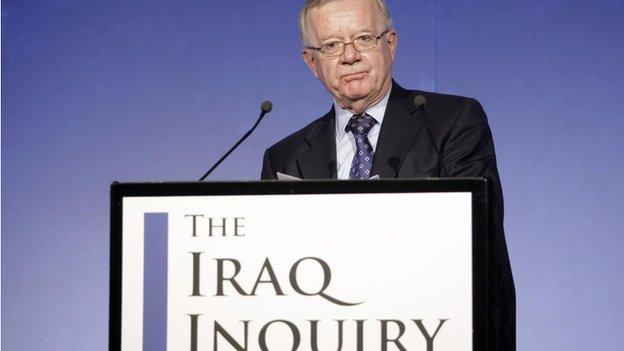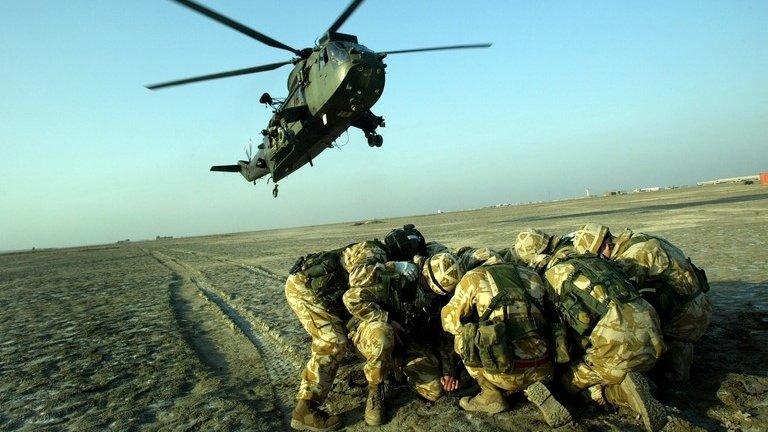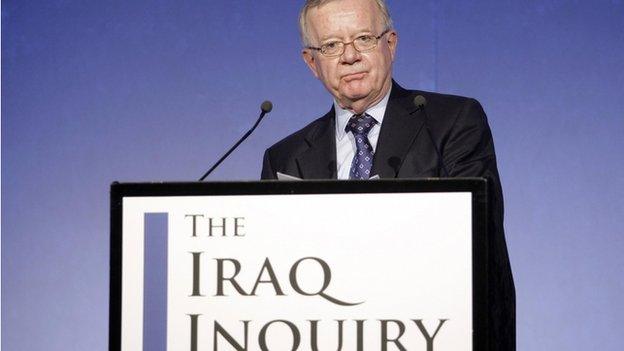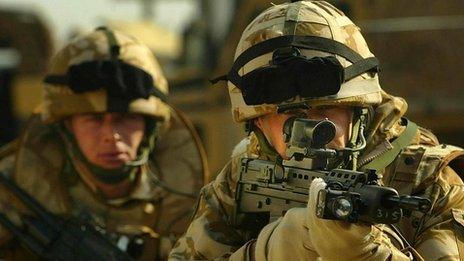Iraq Inquiry: 'More staff' were needed, minister says
- Published

Sir John Chilcot's inquiry began in 2009
The Iraq Inquiry might have completed its work more quickly if it had had more staff, a minister has suggested.
Lord Wallace of Saltaire said the six-year inquiry could have done with more resources to begin with to handle the huge number of relevant documents.
He said the inquiry, which began in 2009, was "very close to the finishing line" but could not say whether it would be published before the election.
Former Foreign Secretary Lord Hurd said the time being taken was a "disgrace".
The inquiry, which is examining the background to the UK's participation in the 2003 US-led invasion of Iraq and its aftermath, has never set a date for completing its work.
But the timetable for publication has reportedly slipped on several occasions and there are now doubts whether it will be published before May's general election.
If the government does not receive the finished report by the end of February, ministers have said it will be held back until after the election as there would be insufficient time to debate it before Parliament is dissolved on 30 March and publication so close to a general election risks prejudicing the outcome.
Answering a question in the House of Lords, Lord Wallace said he regretted the time that the inquiry - launched by former prime minister Gordon Brown in 2009 and led by Sir John Chilcot - had taken but that this was "not entirely unexpected" given the sheer span of events and information it was having to consider.
'Not trivial'
The government whip, a Liberal Democrat, added: "I think in retrospect, as an outside observer, it might have been a good thing to have recruited a larger staff at the beginning of the inquiry because the sheer size of the documentation the inquiry found itself looking through was much greater than had been originally anticipated.
He added: "It is, however, an independent inquiry. The government will receive the report.
"The one decision the government will take is when the report will be published. It is up to the chairman of an independent inquiry to decide when and how it completes its report."
But Lord Hurd, who was Conservative foreign secretary in the early 1990s, urged the government to intervene.
"This has dragged on beyond the questions of mere negligence and forgivable delay and is becoming a scandal," he said.
"This is not something which is of trivial importance. It is something which a large number of people in this country look anxiously for truth. Is it not time that the government exerted itself to make sure that reasonable demand is met?"
In its latest update last May, the inquiry said it was in a position to begin the process - known as Maxwellisation - of contacting those criticised in the report to give them the right to respond, a crucial pre-condition for its eventual publication.
The inquiry has cost about £9m to stage so far, the largest share of which has been spent on staffing costs for its secretariat.
- Published3 November 2014

- Published16 October 2014

- Published12 February 2014
